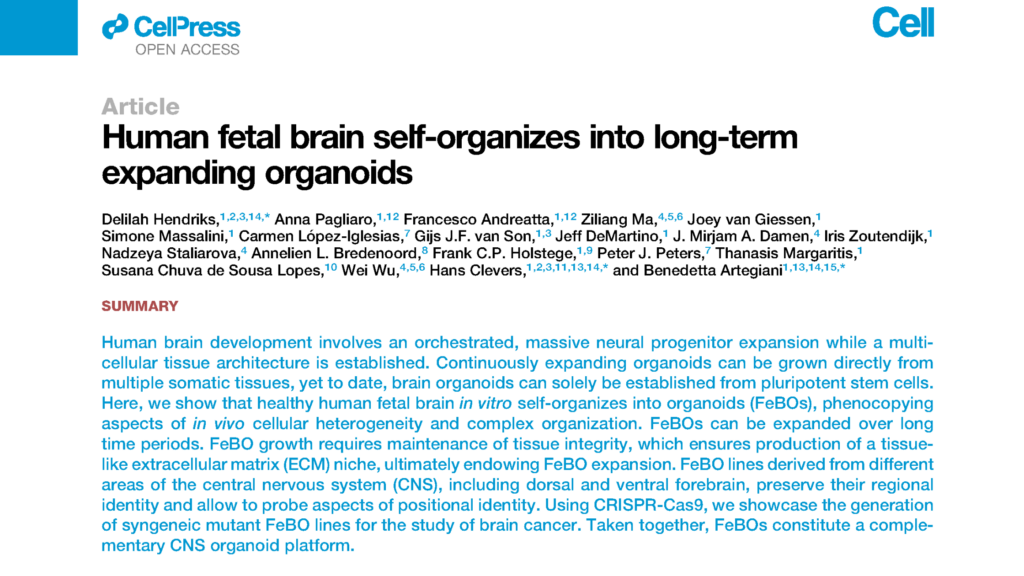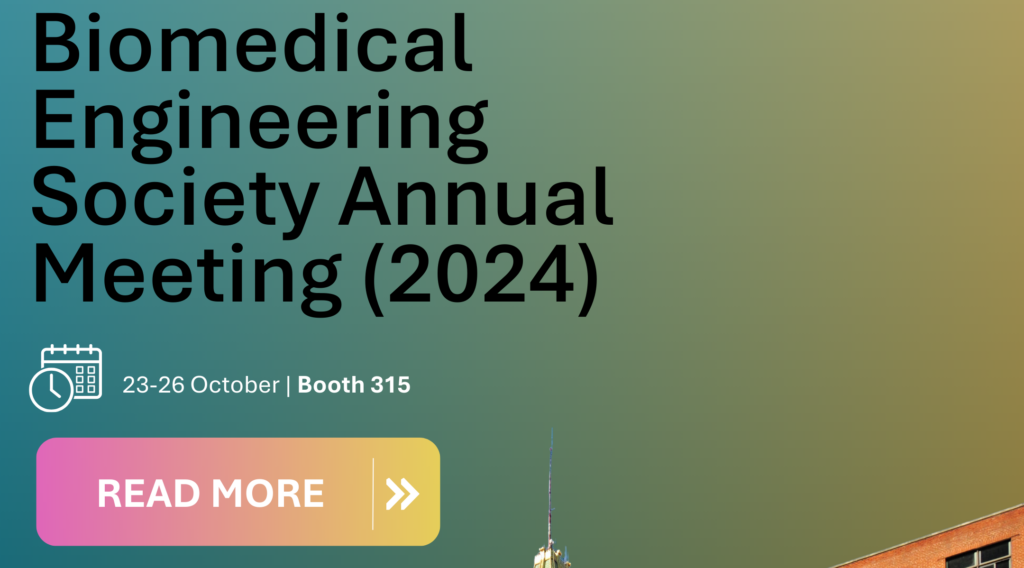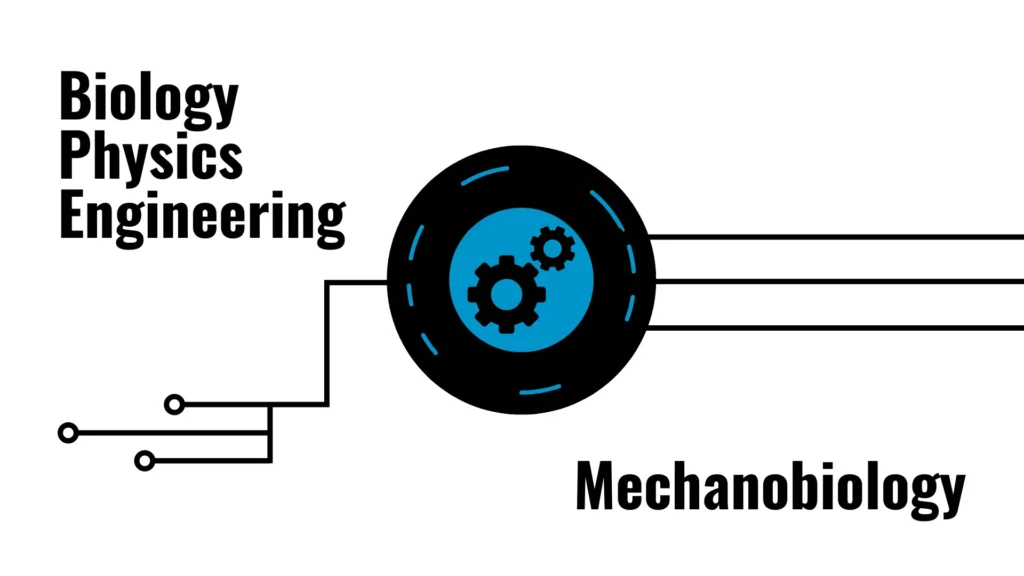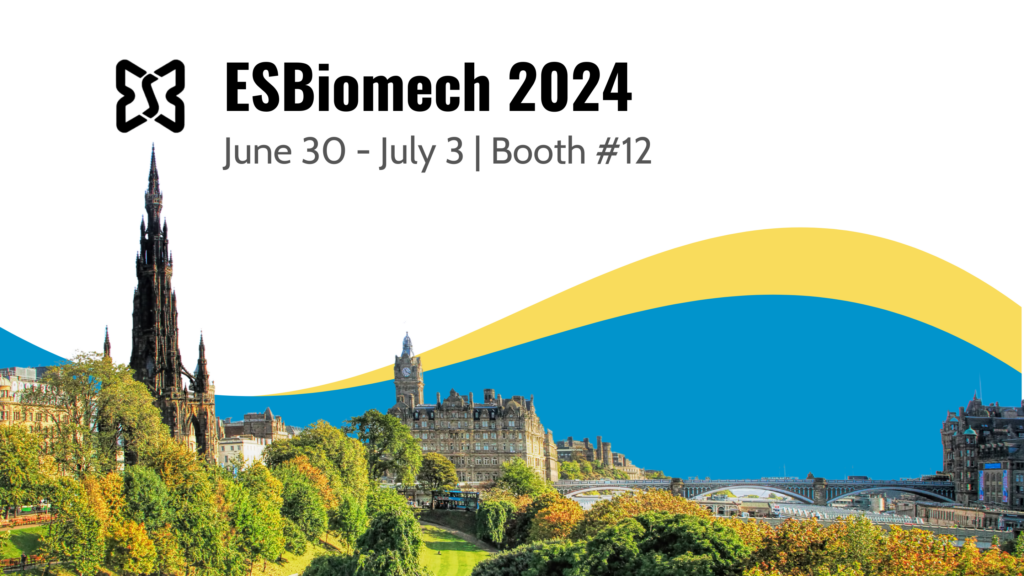The secret sauce to deciphering one of life’s mind-boggling complexities lies in creating a miniature version of itself.
Brain organoids are tiny rice grain-sized copies of the brain created in a lab. They might not visually resemble the brain (like the ones in an anatomy book), but they are very similar in terms of their structure and functions.
Researchers generated brain organoids (a more appropriate term is ‘neural organoids’) from stem cells in 2013, although the underlying concept of miniature organs has been under development since the early 1900s.
For the first time in history, researchers from Princess Máxima Center for Pediatric Oncology and the Hubrecht Institute (Netherlands) have successfully created brain organoids from human fetal brain tissue (FeBOs). Yes, you read it right – from the brain tissue of a developing human fetus during pregnancy.

This study reveals a great deal about brain development. For instance, it was observed that FeBOs grow and organize themselves very similarly to the actual brain. FeBOs can also retain the complexity of the real brain as they feature a mix of different types of cells.
Further, FeBOs were observed to develop complex tissue-like networks (called the extracellular matrix, or ECMs), which scaffold around the cells. The mechanical properties of these complex networks are important biomarkers to detect the growth and spread of a wide array of conditions, including brain tumors.
Lastly, these organoids could mimic the structure and functions of different parts of the brain, making them an invaluable tool to further advance the study of brain diseases.
Dr. Bendetta Artegiani, one of the principal investigators in the study, specializes in growing genetically modified organoids. Known cancer genes (like TP53) were inserted into organoids using a cutting-edge method utilizing CRISPR-Cas9 (a cocktail of a gene and a protein).
This enabled her to study the progression of brain tumors by tracking the interactions between cancer-infected mutant organoids and healthy organoids under various physiological and therapeutic conditions.
Stir-frying CRISPR-Cas9 with mechanics
The stiffness and (visco-)elasticity of tissues change significantly in the presence of a tumor. This is due to the interactions between the network-like ECM scaffolds around the healthy cells and proteins synthesized by tumor cells.
Targeting such mechanical pathways to alter tumor progression has the potential to offer safer therapies, that have fewer side effects in comparison to traditional treatments, such as chemotherapy.
The work of Dr. Artegiani and her team has unlocked the avenue of scaling up clinical trials by performing experiments on lab-grown organoids multiple times over, thus with the potential to produce statistically significant results.
Based on her research, it maybe possible in the near future to develop and validate targeted therapies that alter the stiffness and viscoelasticity of brain tissues to inhibit tumor growth and spread. It is exciting to see what the future holds as research continues to evolve and be applied to improve the development of breakthrough medical treatments.
With the FDA Modernization Act 2.0 allowing organoids to replace animal models and the NIH creating a Common Fund to support organoid technology, the focus now shifts to developing quality standards and regulatory guidance for their use.
This development raises important questions about the classification, patentability, privacy and even the sentience of organoids. It underlines the complex interplay between technology, law, and ethics in healthcare innovation.
This Brain Tumor Awareness Month, let’s recognize the remarkable progress made in organoids, gene editing, and mechanobiology. In addition to pushing the boundaries of translational research, these technologies offer tangible hope for more effective treatments for brain tumors, demonstrating the profound impact of combining scientific innovation with thoughtful regulation.
Disclaimer for Blog Use:
This blog post discusses the research titled “Human fetal brain self-organizes into long-term expanding organoids,” published in Cell on January 08, 2024. It simplifies complex scientific findings for general understanding and should not be taken as medical advice. The use of human fetal tissues in research is ethically sensitive and regulated, and the interpretations provided here do not necessarily reflect those of the original authors or their institutions. The content is meant for educational purposes, highlighting advances in neuroscience and regenerative medicine while acknowledging







